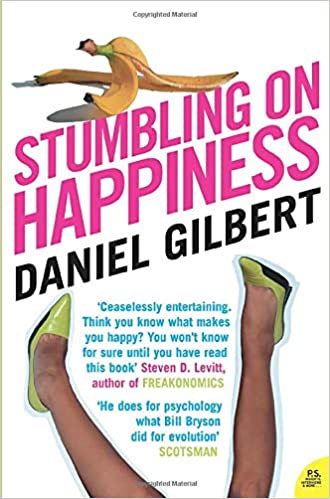Quite nice book which contains various studies about happiness. Suggests the visual blind spot is like memory blind spots, in other words your brain take shortcuts to recall things which may not be accurate. It is easy to change how people recall things depending on what questions you ask. For example, in a study asking a witness if the red car drove through a stop sign many people will agree, even though it was not a red car that they witnessed going through a stop sign.
Outlines we don’t know how other people are feeling, when asking them to report how they feel what they say is prone to errors. We should bear this in mind when conducting research as people are even worse at recalling how they felt, remembering snippets and placing too much emphasis on how they felt at the end of an activity. Suggests rather than disregarding these studies we should undertake more studies, with greater power by having higher numbers of participants to reduce the amount of statistical error that occurs due to people not being great at reporting their own feelings.
In addition people have difficulty predicting the impact actions will have on their future happiness. Therefore interpret these predictions with caution.



